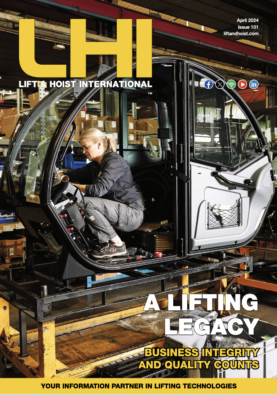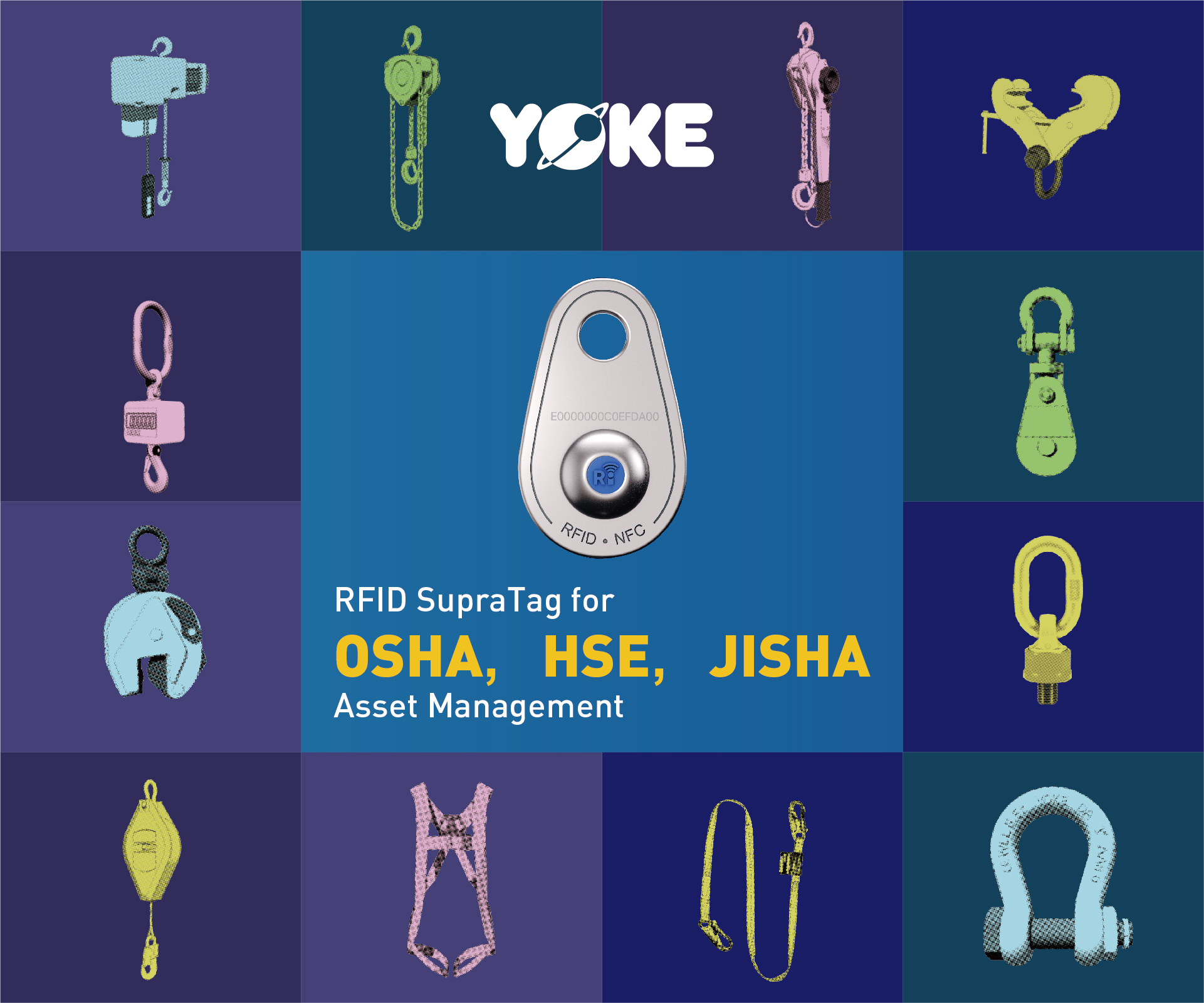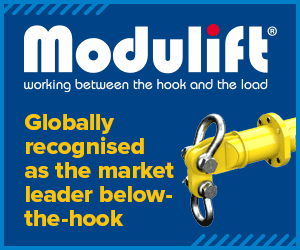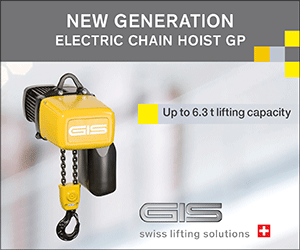)
Demag supplies system solution for automated material flow at Layher
Wilhelm Layher GmbH & Co KG, a world leader in the manufacture of scaffolding systems is planning to build a new production line in Güglingen-Cleebronn in the south-west of Germany and awarded a contract to Demag to design and implement the new automated crane and materials handling system, as well as the required safety equipment.
The installation of five automated process cranes will ensure that the tubes will be effectively stored, picked, and supplied on time with a very high degree of automation. The planned throughput for the new plant is 120,000t per year and 25t per hour.
Layher is planning to build an independent plant in Güglingen-Cleebronn for the production and hot-dip galvanizing of parts for its all-round scaffolding system. ‘Plant 3’ will cover an area of approximately eleven hectares, of which around five will consist of roofed production and storage areas. The production process for the entire location is scheduled to start there, beginning in 2023: This means galvanising the scaffolding elements and, depending on the specific component, the corresponding hot working, ledger welding, standard element welding, and assembly as well.
Bundles of tubes will be delivered from various production plants and then placed in Demag stacking racks at transfer stations to the inbound goods storage area. After the material data is captured by the Demag Warehouse management system (WMS) and registered with the customer’s SAP Hana system, two Demag crane systems take care of the automated material transport operation. To do this, the cranes, which have an 8t load capacity and 25m span, store the stacking racks until they are called up for production. The WMS will use various parameters to determine the storage locations for the bundles of tubes, which will vary in terms of length and wall thickness.
The crane systems will also take care of automated stock retrieval. To this end, the bundles of tubes will be placed on one of three conveyor lines that will then transfer the bundles to the intended production area.
In future, three additional automatic cranes with span dimensions of 11m and a load capacity of 8t will operate in the ledger-welding/cutting areas and in the hot working area. These process cranes will transport the individual bundles to the intermediate storage areas upstream of production – alternatively, they will also take care of serving individual machines with stock directly.
In addition to the delivery data from inbound trucks, the Demag WMS system will incorporate and process production plans and data from the Layher quality assurance system.
In the production area, bundles of tubes will be temporarily stored on a platform above the processing machines with a planned buffer of one production day to ensure that material is supplied quickly, while maintaining a high degree of flexibility. This intermediate storage area, as well as the transfer of material between the areas, will also be managed by the Demag WMS system.
Goods movements will be carried out in sequence, starting from delivery to one of the two inbound goods storage areas, then from those storage areas to the intermediate storage area for production, and finally from this latter area to the processing machines. The sequence in which material will be transferred will be computed and automatically carried out by the Demag WMS system according to needs determined with the customer’s advanced production planning system. The cranes and the materials handling equipment will automatically retrieve the requested bundles of tubes and transfer them based on retrieval jobs from the Demag WMS system. To achieve this, the automatic crane in the inbound goods storage area selected by the WMS system will place the corresponding rack on transfer stations provided by Demag for the conveyor lines to production.
The Demag WMS system will organise retrieval operations on the FIFO (first-in first-out) principle, and will also be able to re-organise stock to create stacks of bundles of the same type when workloads are low, for example. In fact, it will even be able to transfer material between the two bays.
The fact that Demag is delivering the two automatic cranes for this project is not unusual as the company is one of the world’s leading manufacturers of automated cranes and has extensive experience in handling long stock.
This also includes implementation of the Demag Warehouse Management System (WMS). This software for internal material flows is tried and tested globally in various applications for process cranes, including steel and paper roll storage operations as well as for press tools in the automotive industry.
What is less ordinary, however, is the fact that Demag is not just designing and installing cranes for this project, but a complete system solution for the ground-level and overhead material flows, including the corresponding long material store. Accordingly, Layher is applying its own strategy as a leading manufacturer of scaffolding systems to material flow planning as well. Dr Thomas Bönker, senior vice president of process cranes says, “We’re glad that we were able to win this very challenging contract. The complexity is the result not just of the turnkey delivery and planning scope, but also of the fact that a lot of unique requirements had to be considered during planning together with our customer Layher. Thanks to this partnership, which was already initiated at an early stage, we were able to identify and exploit significant potential for improvements in advance.”
The scope of supply also includes comprehensive safety equipment for access control to the handover areas between cranes and processing machines. The process at the bundle loading magazines in the production area, in particular, required especially careful planning. To ensure a safe work environment, Demag will be using extensive safety equipment and automatically moving safety guards and equipment between machines and the storage area.










